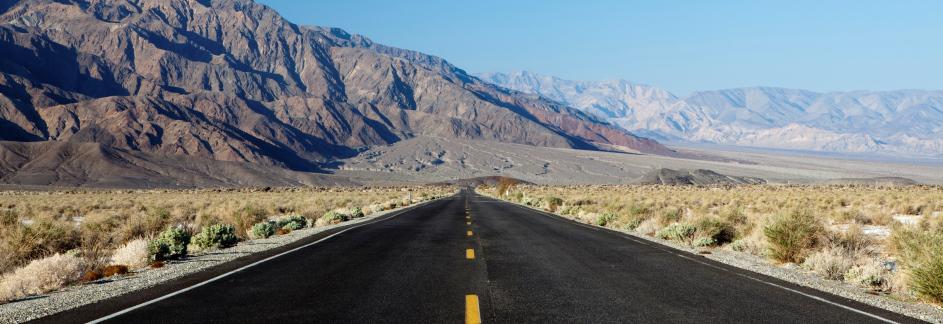At the core of Bahá’í teachings lies a profound exploration of destiny, a theme steeped in both philosophical inquiry and spiritual significance. Destiny, often perceived as a predetermined pathway, invites us to contemplate the interaction between divine purpose and human agency. This article endeavors to unpack the Bahá’í perspective on destiny, encouraging readers to reconsider conventional interpretations and embrace the transformative potential inherent in understanding destiny through the lens of Bahá’í teachings.
The Bahá’í Faith posits that destiny is not a rigidly preordained route but rather a dynamic interplay between divine will and human initiative. This perspective championed by Bahá’u’lláh, the founder of the Bahá’í Faith, implies that while the divine has a plan for humanity, individuals possess the agency to influence the trajectory of their own lives and, by extension, the collective fate of society. The critical question thus arises: Can we, as sentient beings capable of choice, effectively resist our destined path?
In Bahá’í thought, the concept of destiny is intricately linked to the notions of free will and personal responsibility. Each individual, endowed with consciousness and intellect, bears the capacity to make choices that carry both immediate and far-reaching consequences. The Bahá’í writings expound on the power of individual choices to shape one’s character and thereby one’s destiny. This perspective fosters a fundamentally optimistic worldview, wherein every decision can be viewed as an opportunity for growth, transformation or even redemption.
The implications of this view carry significant weight, both for the individual and for society at large. Understanding destiny as a realm in which one can exert influence invites the possibility of profound personal development. Each moment becomes an invitation to engage with one’s higher self, cultivate virtues, and contribute positively to the broader social fabric. The pursuit of such moral and ethical advancement is considered paramount within the framework of Bahá’í teachings.
Moreover, the connection between personal choices and communal destiny cannot be overstated. The Bahá’í understanding posits that the collective destiny of humanity is interwoven with the choices made by individuals. In recognizing this, the Bahá’í community advocates for a model of shared responsibility, urging each member to act with intention and ethical consideration. This interconnectedness emphasizes that individual actions ripple through the collective psyche, affirming the adage that the whole is greater than the sum of its parts.
Central to the Bahá’í discourse on destiny is the acknowledgment of divine assistance. While human agency plays a pivotal role, there is also a recognition of a higher order orchestrating the universe, guiding those who endeavor to align their choices with divine principles. This collaboration between the individual and the divine suggests that, although one may encounter circumstances that appear daunting, there exists a framework of support and guidance that can be tapped into through prayer, meditation, and the application of spiritual teachings.
This synthesis of free will and divine guidance unveils a nuanced understanding of destiny; it fosters a sense of empowerment rather than resignation. The ideal Bahá’í individual operates with an awareness of their potential to affect change, tempered by the humility of recognizing that they are part of a greater tapestry woven by the hands of the divine. Such a philosophy encourages believers to actively engage in societal transformation, aspiring not only to personal fulfillment but also to the elevation of humanity as a whole.
Another salient aspect of the Bahá’í view on destiny is the notion of progressive revelation. Bahá’í teachings assert that divine truth unfolds progressively over time, with revelations from various prophets illuminating human understanding across different epochs. This implies that our comprehension of destiny itself may evolve as we are exposed to greater truths. As one delves deeper into the teachings of the Bahá’í Faith, they may find their perspectives on destiny, and their capacity to shape it, continuously expanding, prompting an unending journey of discovery.
This interconnected exploration serves to pique curiosity and inspire deeper inquiry into the nature of existence. Individuals are encouraged to engage with profound questions regarding their purpose, the ethical dimensions of their choices, and their roles within the broader context of humanity. This intellectual and spiritual engagement promises a transformative shift in perspective—a re-envisioning of destiny as a collaborative endeavor between the finite and the infinite.
In conclusion, the Bahá’í understanding of destiny serves as a compelling invitation to reassess our assumptions about free will and divine intention. It proposes that rather than viewing destiny as an immutable fate to be resisted, one might embrace it as an evolving partnership with the divine, characterized by conscious choice and ethical responsibility. This perspective holds the potential to inspire a renaissance in personal and collective development, urging individuals to leverage their agency for the betterment of both their lives and the world at large. As we embark on this journey of understanding, may we remain open to the infinite possibilities that arise when we recognize our role in shaping our own destinies.
